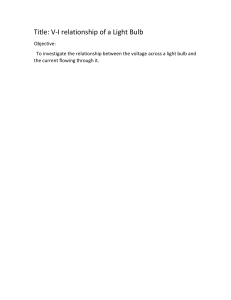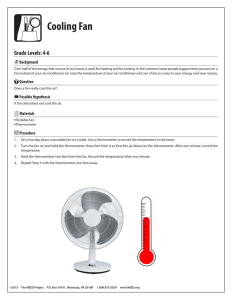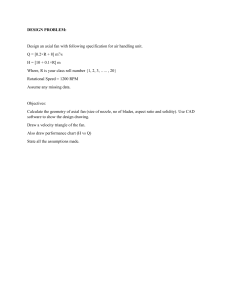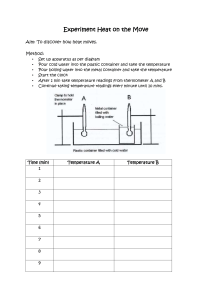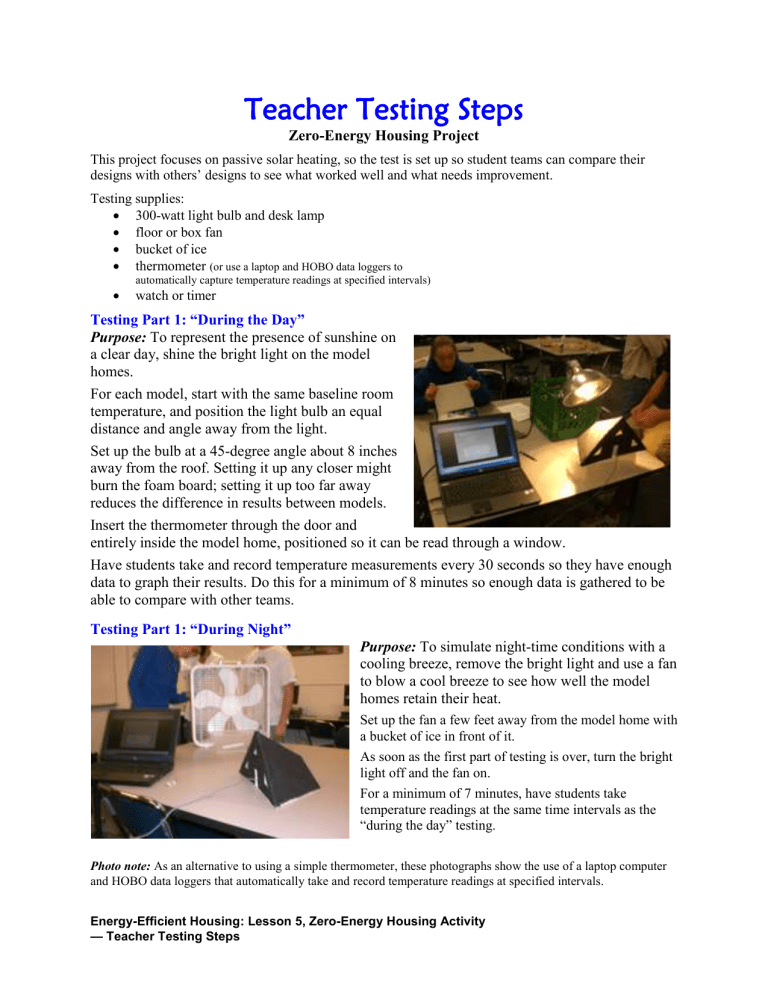
Teacher Testing Steps Zero-Energy Housing Project This project focuses on passive solar heating, so the test is set up so student teams can compare their designs with others’ designs to see what worked well and what needs improvement. Testing supplies: 300-watt light bulb and desk lamp floor or box fan bucket of ice thermometer (or use a laptop and HOBO data loggers to automatically capture temperature readings at specified intervals) watch or timer Testing Part 1: “During the Day” Purpose: To represent the presence of sunshine on a clear day, shine the bright light on the model homes. For each model, start with the same baseline room temperature, and position the light bulb an equal distance and angle away from the light. Set up the bulb at a 45-degree angle about 8 inches away from the roof. Setting it up any closer might burn the foam board; setting it up too far away reduces the difference in results between models. Insert the thermometer through the door and entirely inside the model home, positioned so it can be read through a window. Have students take and record temperature measurements every 30 seconds so they have enough data to graph their results. Do this for a minimum of 8 minutes so enough data is gathered to be able to compare with other teams. Testing Part 1: “During Night” Purpose: To simulate night-time conditions with a cooling breeze, remove the bright light and use a fan to blow a cool breeze to see how well the model homes retain their heat. Set up the fan a few feet away from the model home with a bucket of ice in front of it. As soon as the first part of testing is over, turn the bright light off and the fan on. For a minimum of 7 minutes, have students take temperature readings at the same time intervals as the “during the day” testing. Photo note: As an alternative to using a simple thermometer, these photographs show the use of a laptop computer and HOBO data loggers that automatically take and record temperature readings at specified intervals. Energy-Efficient Housing: Lesson 5, Zero-Energy Housing Activity — Teacher Testing Steps
